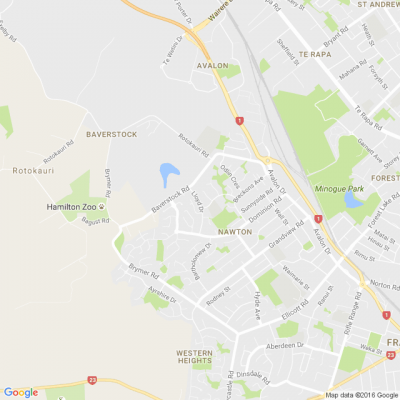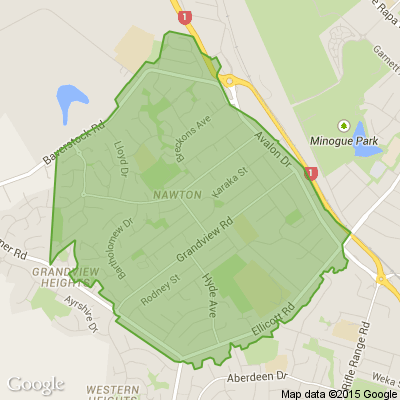Learn for free gardening/Kai oranga
Learn for free in the waikato! I need 20 people who would like to learn gardening, cooking, history, Kaupapa Maori, rongoa and more enrolments are still open starting the week of 24th July 2023 finishing 12th Dec 2023. please read and share!
The course will begin from the 24th July, numbers pending. From Fairfield, the classes are mixed online (Zoom) on a Tuesday evening, Thursday workshop/tutorial from 5.30pm to 9pm.
An outdoor tutorial on a Wednesday is available for students from 10am – 1.30 who prefer a daytime workshop.
There are also weekend wananga that go with this course.
If you would like further information or are interested in enrolling, please do not hesitate to contact me on 0204846626 or on this email address.
Please check out the following link:
www.wananga.ac.nz...
Kai Oranga – kaupae tuawhā
Course introduction and outline
Welcome to this important kaupapa in these interesting times! Times when ensuring you, your whānau and your community has kai security, kai sovereignty and the knowledge and skill to make that happen, is becoming more important than ever. This course will help you achieve that.
Hua Parakore – the overarching framework
The topics of the course are explored through the hua parakore principles.
Literally, hua parakore means ‘hua’ or ‘fruit / produce’ without contamination. This is much broader than no pesticides or herbicides.
Hua parakore is a kaupapa Māori based framework for growing kai, developed by Te Waka Kai Ora, the Māori Organics Authority. It is also a verification system for growers. Although developed with growing kai in mind, it is also a framework for living, consistent with a Māori world view - living as part of the interconnected web of whakapapa from Ranginui and Papatūānuku. The framework consists of six principles – whakapapa, mana, mauri, te ao tūroa, māramatanga and wairua.
Te reo Māori
You do not need to speak te reo to do this course! We will learn and use kupu (words) in our classes as we go and after a while you won’t even realise, you’re using them – it will just become normal. All assessments require the use of appropriate kupu Māori so it’s a good idea to keep a note of them in a notebook. We will learn appropriate karakia for different occasions which will always be explained. We will learn at least one waiata, appropriate to the course, and if we have keen singers/guitar players then we can learn more!
Aromatawai / assessments
There are 11 assessments, most of which are made up of a number of bite sized parts. All assessments except one can be done in a group or individually – your choice. I encourage you to work together to enrich your learning and to make your lives easier. We will work through all assessment topics in class and complete as many as possible in class time as well. I do not believe personally that assessments are the be-all and end-all of learning. They are however necessary to prove to the funders of the course that the content has been taught successfully. The Law of Nature says you must give what you take. In Māori we would call it utu or reciprocity. Completing the assessments and the course is our way of reciprocating for it being provided free of charge, and our way of paying it forward for those who want to do the course in the future. None of the aromatawai are hard as the course is level 4 on the National Qualifications Framework – university level work is not required!
I will collect the bite-sized parts of assessments as we go, so we don’t have a big panic at the end. Please send things to me by email if at all possible Georgianne.crawford@wananga.ac.nz.
Kaupapa (themes / topics) we will cover
The course is organised into four kowae ako or groupings and the kaupapa are listed below in this way. However, the threads of all four are woven together as we go rather than being addressed in a linear fashion. In this way we model what we are learning ie everything is connected, and it wouldn’t make much sense for us to leave planting the maara until last!
KAI401
· Maramataka
o As part of a Māori system of time
o Observations of Hina-marama (the moon)
o The effects of lunar phases
o Appropriate times for different mahi maara (gardening activities)
· Seasonal and regional factors that affect our mahi maara
· Tohu (signs) that indicate ideal planting or harvesting times
· Earth / soil
o Historical importance of earth/soil to Māori
o Mauri of earth/soil (including moroiti or soil life)
o Earth/soil assessment
o Crop rotation
o Whānau plantings (companion planting)
KAI402
· Hua parakore
o Exploration of the six principles – what do they mean?
o How do these principles apply to maara kai?
· Nutrition
o Nutritional properties of kai grown in a maara.
o The effect on nutrition of different preparation techniques
o Kai to boost gut health and our immune systems
o Kai storage
· Seeds
o Seed sovereignty
o Observation and comparison of different seed cycles
o Annual, biennial, perennial life cycles
· Introduction to permaculture
o What is permaculture?
o Permaculture design principles
KAI403
· Permaculture cont.
o How does permaculture relate to the hua parakore principles?
o Design
§ What can we learn from nature?
§ Basic design process
§ Design project – application of design principles
KAI404
· Rongoā
o What is rongoā Māori?
o Exploration, discussion and application of a number of forms of rongoā
· Distribution of kai
o Manaakitanga – what is it and what are its effects?
o Kai security and kai sovereignty
o Class project to demonstrate how the hua / produce of maara kai can be distributed in a way that enhances the mana of all parties.
· Practical mahi maara (growing kai)
o Different methods of gardening
o Different types of kai - annual and biennial vs perennial
o Using our developing knowledge of the maramataka
o Recording our mahi, observations and results in our rātaka for future reference
o Preparation, including mahi pūwairākau (composting)
o Planting
o Hauhake (harvesting)
o Review of a maara according to Māori principles
If you have any questions, please ask.
Mauri ora
Georgianne Crawford
Gain knowledge and life skills! Free maara kai and mahinga kai course in Fairfield, level 4 NZQA.
We will be Learning about soil seasonal and regional tohu and maramataka, preserving and preparing kai from your maara, permaculture principles, there is a small rongoa and healing component.
Now taking enrolments for The level 4 kai oranga course is now here in the Waikato! An NZQA course through Te Whare Wananga o Awanuiarangi, delivered right here in the Waikato!
Fees Free!
20 weeks
3 x 3 day weekend noho over the 20 weeks.
Two evening classes per week and a day tutorial for those wishing to have a daytime session.
Minimum requirements to enter:
-Aged 16 - 100
-You will have a commitmemt to attend the kaupapa, and a willingness to learn, share and participate in developing a beautiful maara.
To enrol you will need to be:
-A New Zealand citizen or permanent resident
-Have a passport or birth certificate.
If you do not have either we may be able to assist you for the purposes of enrolling.
To put in your expression of interest or if you have any questions Pm me or email me: georgianne.crawford@wananga.ac.nz
You will need to contact me to sign up.
www.wananga.ac.nz...
Scam Alert: Fake information regarding December Bonuses from MSD
The Ministry of Social Development is reporting that fake information is circulating about new ‘December bonuses’ or ‘benefit increases’
If you get suspicious communication, please contact Netsafe.

Today’s Mind-Bender is the Last of the Year! Can You Guess It Before Everyone Else? 🌟🎁🌲
I dance in the sky with green and gold, a spectacle few are lucky to behold; I’m best seen in the south, a celestial sight—what am I, lighting up the New Zealand night?
Do you think you know the answer? Simply 'Like' this post and we'll post the answer in the comments below at 2pm on the day!
Want to stop seeing these in your newsfeed? No worries! Simply head here and click once on the Following button.








 Loading…
Loading…